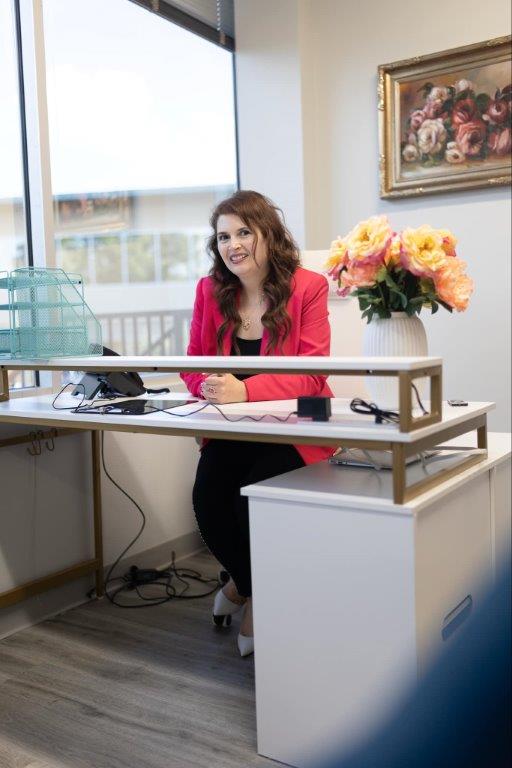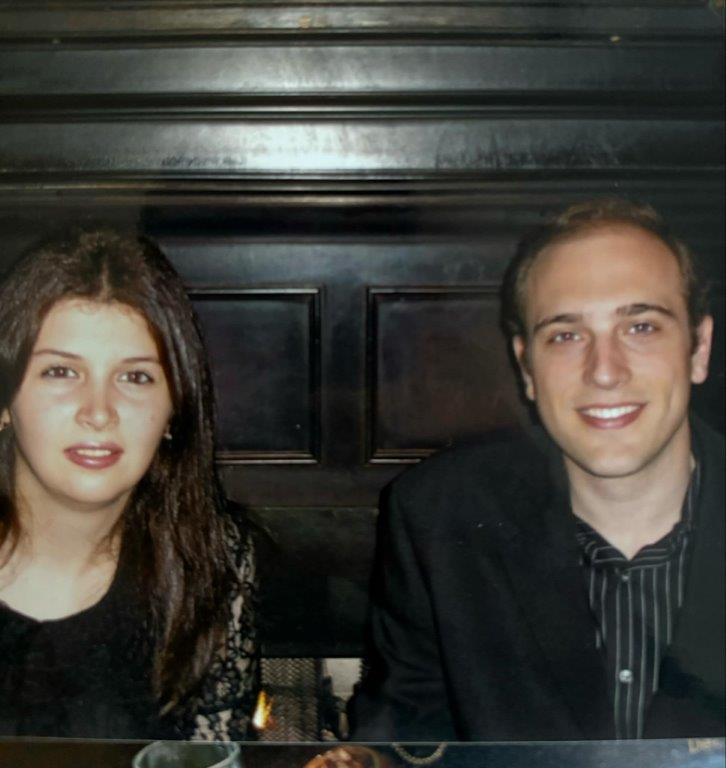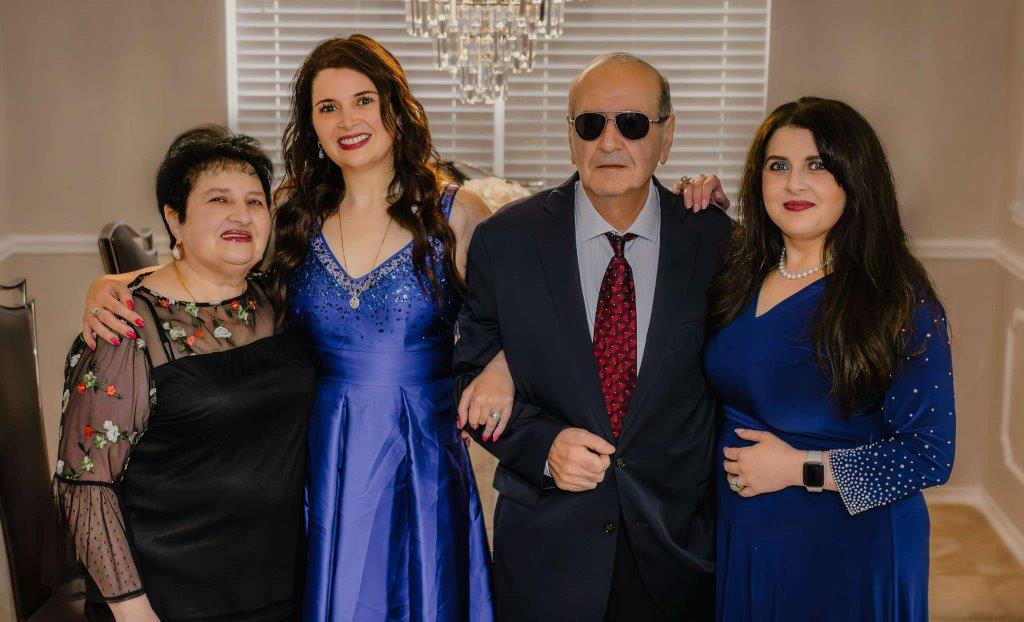
– Kristina, could you tell us how your journey in the United States began?
My journey in the United States started back in 2005 when I enrolled at Michigan State University. After graduating with honors from Tbilisi State Medical University, I received an invitation to continue my studies in Michigan in the Department of Epidemiology. This was a pivotal moment in my life and career when I realized that my true calling was to pursue clinical medicine rather than research.
It was at Michigan State University, in the Department of Biochemistry and Genetics, that I met my future husband, Dr. Paul Jones. We got married in 2006 and decided to change our career paths. I began preparing for medical exams to enter a residency program, while my husband, Paul, became a physician assistant with plans to later attend medical school.
– Where did you study and work before moving to Texas?
I had to take the same medical exams as U.S. medical graduates in order to obtain a physician’s license and qualify for a residency program. I began my residency in internal medicine at Aurora Healthcare, affiliated with the University of Wisconsin. This was a significant time in my life, where I worked with Russian-speaking patients and realized how important it is to provide medical care in a patient’s native language. I had many Russian-speaking patients, and I still have warm memories of them. I remember organizing free screenings and seminars for the Russian-speaking community. While working in Wisconsin, I had the privilege of learning from wonderful mentors, including Dr. Biana Leybishkis, who taught me so much. I still keep in touch with her and am grateful for her guidance.
After completing my residency, I worked as an internal medicine physician at the Baylor Scott White Center for Diagnostic Medicine in Temple, Texas. I also became a faculty member at Texas A&M Medical School and later at Baylor College of Medicine.
In 2020, I decided to focus on psychiatry and mental health. I was accepted into the “Psychiatry in Primary Care” fellowship at the University of California, Davis. My desire to help people with mental health issues became an important part of my professional path.

– Tell us about your family. Did they influence your career choice?
My family has deep roots in medicine. I come from a family of doctors, and that is where my love for medicine began. My great-grandfather was one of the first doctors in Georgia, my grandfather was an orthopedic surgeon, my mother is a neurologist, and my father is a physician and professor who trained multiple generations of doctors. My aunts and uncles are also medical doctors. From a young age, I knew I wanted to become a doctor. I traveled with my parents to rural areas in Georgia, where they helped patients who didn’t have access to quality healthcare. I grew up understanding that a true doctor doesn’t just treat physical ailments but also provides emotional support to the patient. This inspired me to eventually choose psychiatry and mental health as my specialization.
– How have your professional experiences helped you work with the Russian-speaking community in the U.S.?
During my residency in Wisconsin, I worked with Russian-speaking, Polish, and German communities. I was fortunate to learn from doctors from the former Soviet Union, such as Dr. Biana Leybishkis, who taught me the art and practice of medicine. I believe a good doctor heals not only with medical treatment but also with words.
My goal is to create an atmosphere of peace and comfort where patients receive more time and attention than what is typically offered in large healthcare institutions. As a faculty member at Baylor College of Medicine, I taught my students that human life is a treasure, and the art of medicine lies in caring for each patient.
– Tell us about your new clinic.
I opened my clinic, where patients receive sufficient time and attention without the need to wait in crowded waiting rooms or be limited to ten-minute appointments, which is often the case in large healthcare centers. In my practice, I strive to create a cozy and calm environment where patients feel comfortable.
At my previous job at Baylor Scott and White, I also taught residents and medical students, focusing on the importance of the doctor-patient relationship. My main goal as a doctor is to build trust with my patients so they can openly share their concerns without fear of judgment.

– You mentioned that you want to open a free clinic. Could you tell us more about that?
My ultimate goal is to open a free clinic to help vulnerable patients with both medical and mental health issues. When I moved to Austin, I discovered a large Russian-speaking community here that lacks access to Russian-speaking doctors. It’s important for patients to receive care in their native language and feel that their cultural background is understood.
My sister, Aleksandra Bessent, who is also a doctor, helps with this as well. She retrained as a psychotherapist and actively supports the Russian-speaking community in Texas, helping them overcome trauma, grief, and other mental health challenges.
– What is your primary goal as a doctor for the Russian-speaking community?
My goal is to be the doctor to whom Russian-speaking patients can turn for help and feel at home. At my clinic, Optimum Wellbeing, the health and well-being of my patients is my priority. I offer consultations in internal medicine, mental health, and weight management. I see patients in my office in Austin and also through telemedicine across the state of Texas. I currently have patients in Dallas, Houston, San Antonio, and Waco. I offer a free 10-minute consultation to all new patients to determine how I can help them with their medical and emotional needs.
– What else would you like to share about yourself?
I am also a mother of four children, but that doesn’t stop me from focusing on my beloved work. For me, this isn’t just a job; it’s what I live for.
Contact information:
Dr. Kristina Jones
Website: optimumwellbeing.org
Tel. 512-500-2790
9433 Bee Caves Rd
Building 2, Suite 201
Austin, TX 78733
Facebook: facebook.com/kristina.jones.3388630
Interviewer: Dmitriy Ovcharenko
Publisher: Russian Cultural Center in Austin
